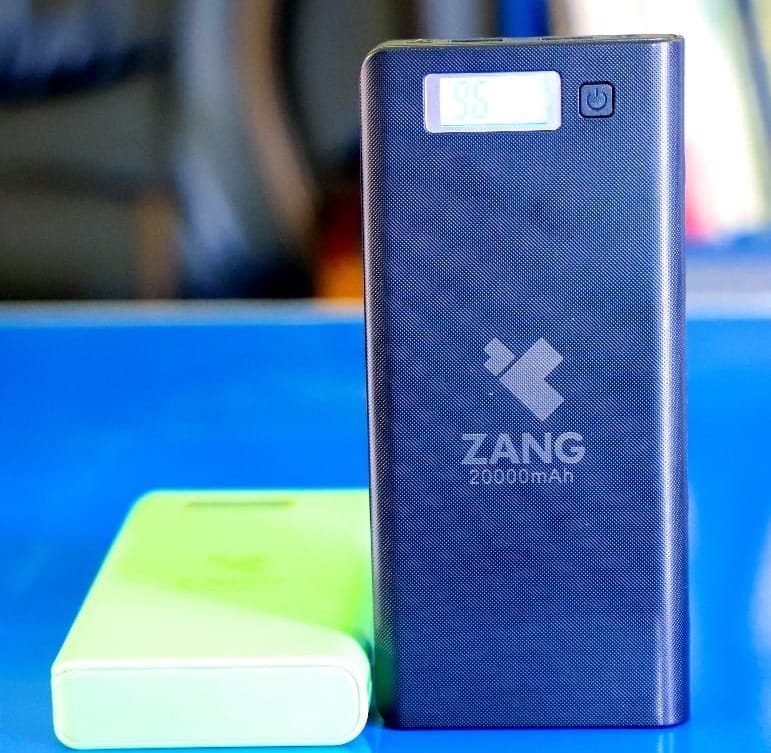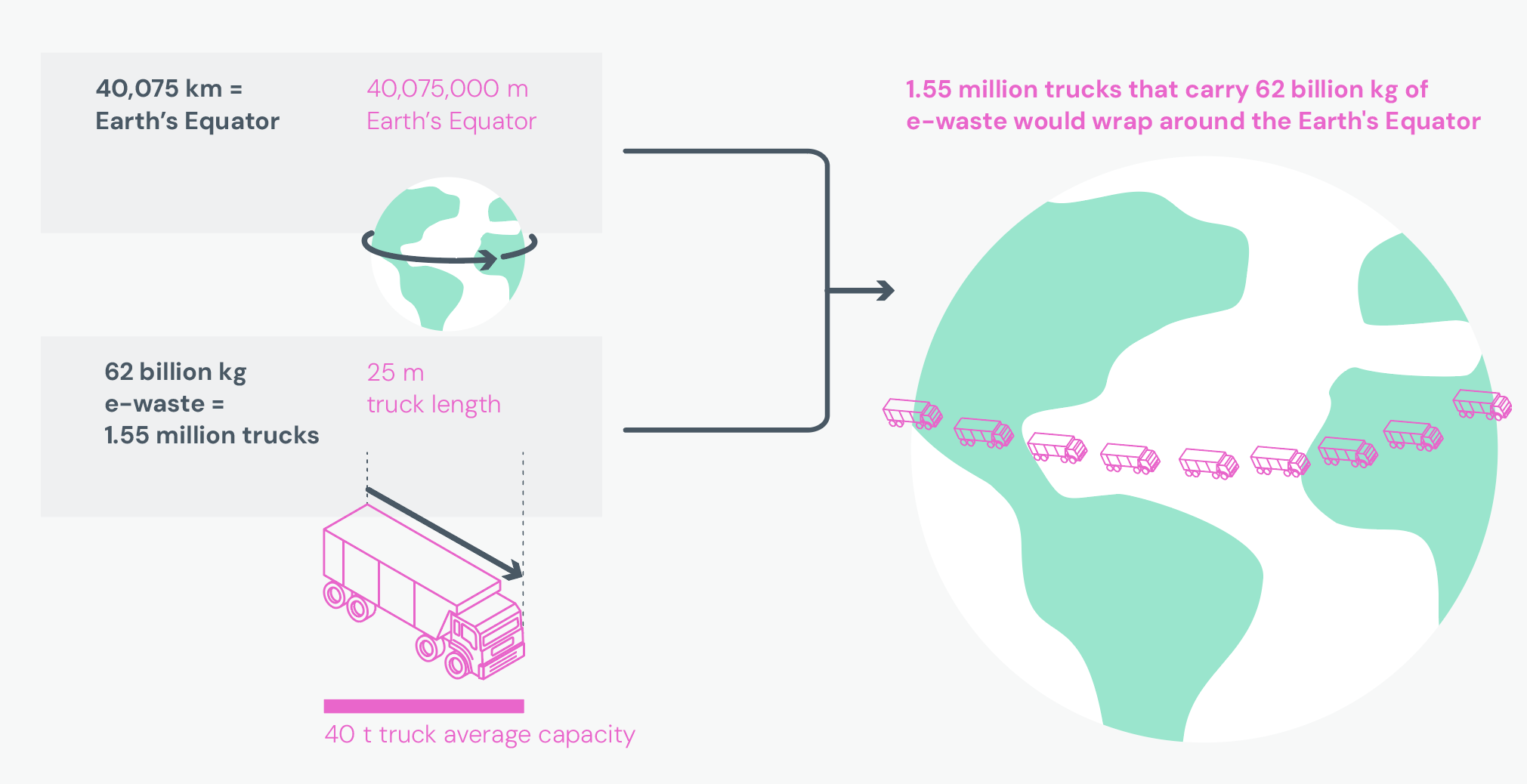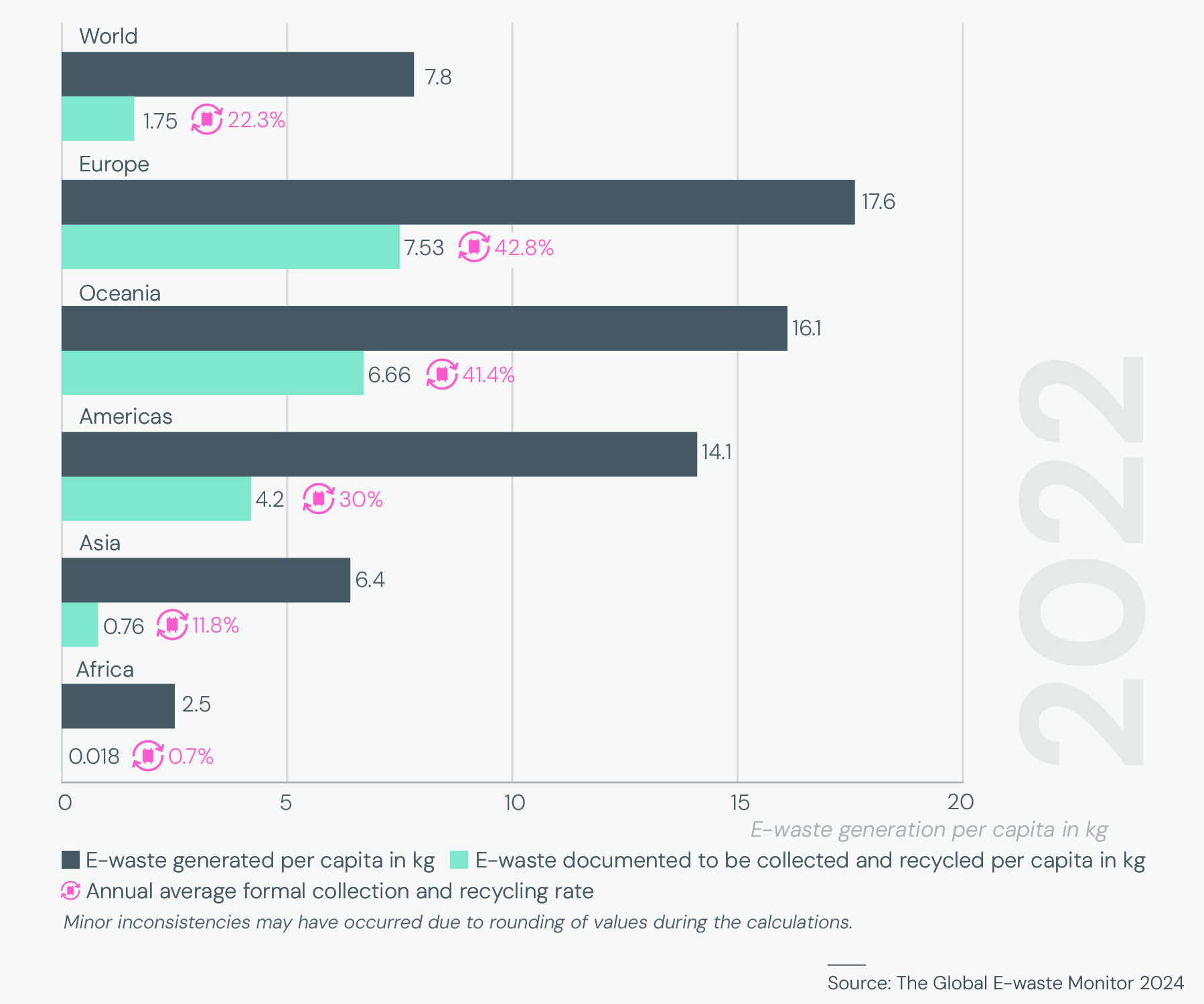This self-taught innovator in Nigeria upcycles e-waste into power banks
A few years ago, Zang Luka Bot saw an opportunity to transform electronic waste, diverting it from landfills and giving it a new life as power banks and solar lanterns.

Have you ever woken up from a dream, only to have it vanish like smoke? It's a frustrating experience, one that plagued Zang Luka Bot, a Jos-based technopreneur. But in 2017, after one forgettable dream too many, Luka decided to fight back. His audacious goal? To build a dream recorder.
"I wanted a device that would let me replay my dreams upon waking," Bot told Bendada.com.
This dream fueled his experimentation. However, a harsh reality check awaited him: a lack of basic resources. It was then that Bot stumbled upon a hidden treasure trove - electronic waste, also known as e-waste. Throughout Jos, the capital of Plateau State, he noticed discarded devices, deemed useless by their owners.
"That's when I discovered the value of e-waste," he said. "We found that 80% of its components were valuable."
This discovery became the key to unlocking Bot's childhood dream of a science career. Despite being steered towards social sciences in secondary school due to his grades, Bot's passion for science burned bright. He became a self-taught scholar, devouring textbooks, and online videos, and conducting his experiments, like the time he boiled kerosene to witness the reaction (not recommended!).
In 2018, one year after his initial goal of building a dream recorder remained unrealised, Bot, founded a Jos-based electronics manufacturer Zang Technologies at age 26, shifting his focus to the production of power banks and other essential electronics such as solar lanterns.
Nigeria's power grid struggles to meet the needs of its 200 million citizens. Despite generating an average of 4,000 megawatts (MW) of electricity, the nation faces constant blackouts due to a multitude of issues. Gas shortages, damaged transmission lines, and financial strain all contribute to frequent grid collapses. Even during operational periods, power outages affect residents for hours or even days.
For those unable to afford off-grid solutions like solar panels, power banks become a lifeline. These portable chargers provide a reprieve, allowing people to recharge phones and laptops during outages.
Related Article: Seven best laptop power banks in Nigeria and their prices
"Once there's light, I make sure that my power bank is charged, just so I don’t get frustrated when the light is gone," said Adeola Olamide, a product designer.
While precise sales figures for power banks in Nigeria are unavailable, a small shop owner at a GSM market in Jos reports selling at least three daily. Meanwhile, Zang Technologies said it gets orders in a day within the range of 15 - 20 pieces, highlighting the prevalence of these devices in Nigeria's everyday life.
Recognising the opportunity, Bot embarked on collecting electronic waste. He built a network of suppliers, sourcing discarded electronics from repair shops in Jos and beyond. To encourage participation, he offered varying prices based on the condition of the e-waste.
Since 2018, Zang Technologies has sold over 21,000 power banks with varying capacities, including a 5000/13000mAh model with 5V/1A input and output. These power banks are compatible with a wide range of devices, according to Bot, including smartphones, iPhones, cell phones, MP3 players, MP4 players and Bluetooth headphones.

"We have battery testers that help us determine the capacity of the power bank," he added. Additionally, some of the power bank cases are crafted from upcycled materials, including hard cartons and shoe components.
Jessica Pam, who has used a Zang power bank for a year now, said, "I appreciate that I can recycle while using a reliable product." The lifespan of Zang power banks varies. Bot says, some users have had theirs since 2018, while others experience issues after two or three years. "We try to refurbish the power banks whenever customers contact us," he said.
The 32-year-old innovator finds his creations selling well, with, most of his customers from outside Jos, like Lagos and Port Harcourt. This suggests a gap in local appreciation for these indigenous products, he said. Regardless, Zang Technologies aims to expand its e-waste extraction and product distribution to all the states in Northern Nigeria and other parts of the country.
While bootstrapped for the most part, the company has also attracted grants (amount undisclosed) and prestigious awards for his innovative products, including a ₦1 million top prize at the 2019 National MSME Awards and the 2019 Future Awards Africa Prize for Technology, alongside several other local and international recognitions.
As Zang Technologies is planning to expand it has faced a hurdle: securing the machinery needed to scale production. “Demand for our products outstrips supply," said Bot, attributing this gap largely to limited access to funding.
Clearing the e-waste from our dumpsites
"These power banks are tackling three problems at once," Bot said. "It offers sustainable power to combat low batteries, generates income for me and my team and reduces fossil waste for a healthier climate through alternative power sources."
The United Nations’ latest Global e-waste Monitor (GEM) disclosed that electronic waste is exploding at a rate five times faster than documented recycling efforts can handle.
In 2022, about 62 million tonnes of e-waste were generated – a figure so massive it could fill 1.55 million 40-tonne trucks, enough to encircle the Earth at the equator. Even more troubling, the report highlights that just a fraction, 22.3%, of this e-waste was properly collected and recycled. This translates to a loss of valuable resources worth a staggering $62 billion and a growing risk of pollution impacting communities globally.

The future trajectory doesn't look much brighter. Electronic waste generation is expected to continue its rapid rise, with an annual increase of 2.6 million tonnes projected to push the total to 82 million tonnes by 2030 – a 33% jump from 2022 levels.
Zang Technologies goes beyond selling power banks. Their staff, like Bot, actively encourage customers to bring in old electronics for recycling. They even help refurbish some power banks, saving resources. "We believe that every kilogram of waste that we recycle is equal to saving about two kilograms of carbon emission," Bot added.

Economically, The GEM shows that the world is currently wasting $91 billion in valuable metals due to insufficient e-waste recycling.
"We must seize the economic and environmental benefits of proper e-waste management," Vanessa Gray, head of the environment and emergency telecommunications division at ITU Telecommunication Development Bureau, said. "Otherwise, the digital ambitions of our future generations will face significant risks."
Additional reporting by Joey Shekwonuzhibo






